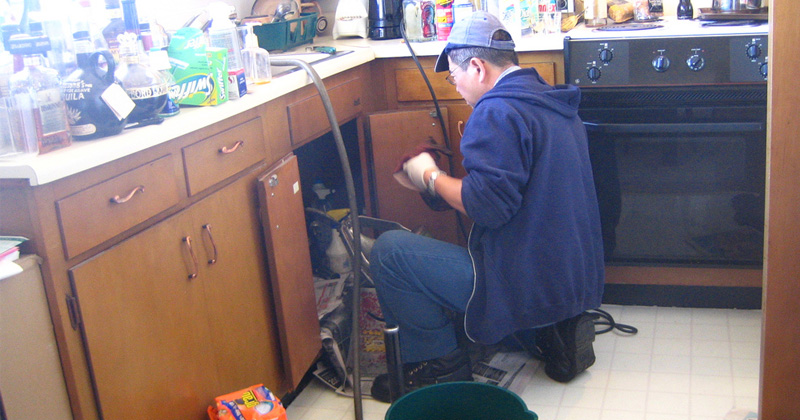Vital Bathroom Plumbing Advice Every First-Time Home Buyer Should Know
Vital Bathroom Plumbing Advice Every First-Time Home Buyer Should Know
Blog Article
What're your opinions on Plumbing Tips for New Homeowners?

For new home owners, understanding and maintaining bathroom plumbing can conserve both time and money by avoiding expensive concerns down the line. Right here are some necessary bathroom pipes suggestions to aid you maintain whatever running efficiently.
Familiarize Yourself with the Main Shut-Off Valve
Knowing where the main water shut-off shutoff is located in your home is essential. This permits you to swiftly shut off the water supply in case of significant leaks or throughout plumbing emergencies, protecting against comprehensive water damages.
On A Regular Basis Examine for Leakages
Little leaks can result in large troubles. Regularly check under sinks, around commodes, and near pipes components for any kind of indicators of leakages. Look for moisture, little drips, or rust. Catching and repairing leaks early can prevent a lot more significant damage and save water.
Do Not Overlook Slow Drains
If your sink or bath tub is draining pipes slowly, it's usually an indicator of a clog developing. Addressing this early can prevent a total obstruction. Use a plunger or a plumber's snake to clean out particles. Prevent using chemical drainpipe cleaners as they can damage your pipes over time.
Know What Not to Flush
Bathrooms are not garbage disposals. Avoid flushing anything other than toilet paper and human waste. Things like wipes, feminine hygiene items, and cotton bud should be thrown away in the garbage to avoid obstructions and drain backups.
Set Up Strainers in Drains
Location filters in your sink and tub drains to catch hair and other particles prior to they enter your pipes system. Cleaning up the filters regularly will help avoid accumulation and keep water streaming easily.
Preserve Your Water Heater
Ensure your water heater is set to an appropriate temperature (commonly around 120 degrees Fahrenheit) to prevent hot and decrease energy use. Flush the tank each year to eliminate sediment build-up, which can lower the efficiency and life-span of your heating unit.
Upgrade Your Fixtures
If your home has older fixtures, consider updating to a lot more efficient designs. Modern bathrooms, showerheads, and faucets are made to make use of much less water while offering excellent pressure, which can substantially lower your water bill and ecological footprint.
Beware with DIY Plumbing Repairs
While it's alluring to deal with all home repairs by yourself, beware with plumbing. Some problems may call for specialist know-how, especially if they involve primary water lines or drain fixings. Hiring an expert can occasionally be more economical than DIY, specifically if it prevents additional damage.
Plan For Winter
Secure your pipelines from freezing during cold weather by protecting pipes in unheated locations like basements, attics, and garages. Throughout severe cold, allow cold water drip from taps offered by revealed pipelines to assist prevent freezing.
Arrange Regular Upkeep
Consider organizing yearly inspections with a certified plumbing professional. They can find concerns that you might miss out on, such as surprise leakages or damage on pipes and fixtures. Routine upkeep helps prolong the life of your pipes system and can prevent emergency situations.
Final thought
Comprehending and keeping your home's shower room plumbing can avoid numerous usual concerns. By following these vital pointers, you can ensure your shower room stays practical and reliable, saving you time and money in the long run.
Essential Plumbing Tips for Homeowners: Keep Your Pipes Flowing Smoothly
As a homeowner, understanding the basics of your plumbing system can save you time, money, and a lot of headaches. Plumbing issues can range from minor annoyances like dripping faucets to major problems like burst pipes that cause significant damage. This guide provides essential tips to help you maintain your plumbing system and tackle common issues.
Understanding Your Plumbing System
Supply System: Brings fresh water into your home from a municipal source or a well. Drain-Waste-Vent System: Removes wastewater and vents sewer gases outside. Fixtures and Appliances: Includes sinks, toilets, showers, dishwashers, and washing machines. Basic Maintenance Tips
Regular Inspections: Periodically check for leaks, corrosion, and other signs of wear and tear. Look under sinks, around toilets, and near water heaters. Know Your Main Shut-Off Valve: In case of a major leak, you’ll need to shut off the water quickly. Ensure everyone in your household knows where the main shut-off valve is located. Prevent Frozen Pipes: In cold climates, insulate exposed pipes and let faucets drip during extreme cold to prevent freezing. Use Strainers: Install strainers in sinks and tubs to catch hair, food particles, and other debris that can cause clogs. Common Plumbing Issues and Solutions
Clogged Drains:
Prevention: Avoid pouring grease down the drain and use drain screens to catch debris. DIY Fix: Use a plunger or a plumbing snake to clear minor clogs. For stubborn clogs, a mixture of baking soda and vinegar can sometimes help. Leaky Faucets:
Prevention: Replace washers and seals regularly. DIY Fix: Turn off the water supply, disassemble the faucet, and replace worn parts.

Book Maintenance Report this page